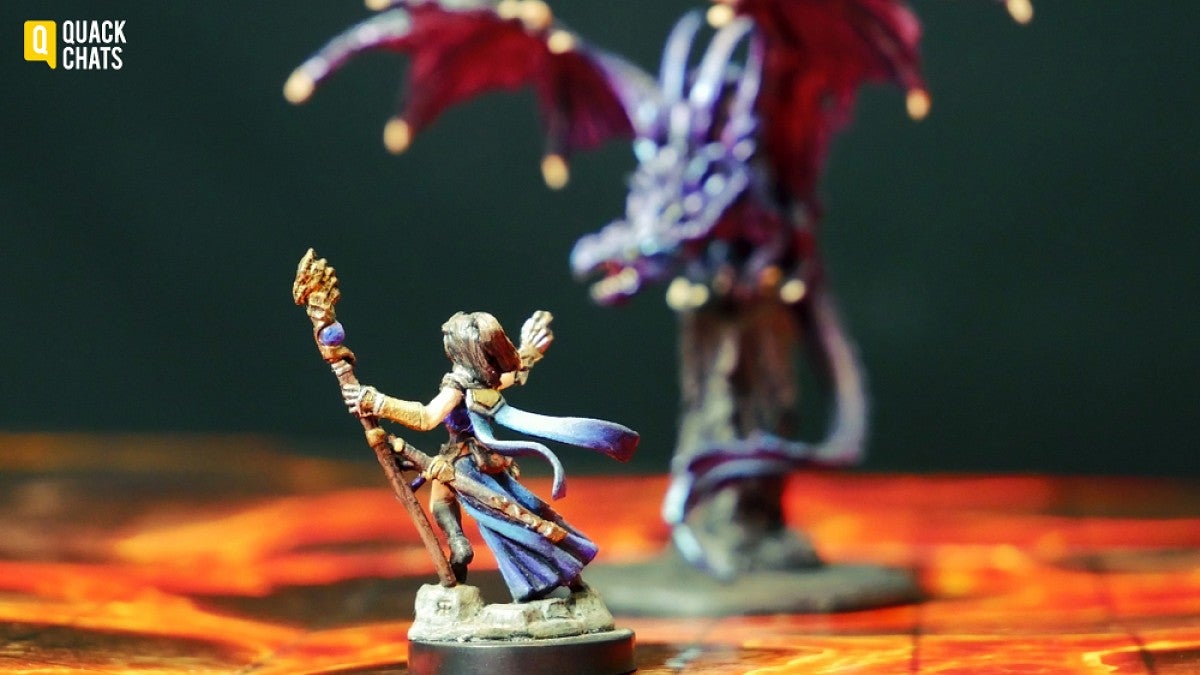Fantasy game players often get the chance to become someone else — perhaps a powerful wizard, a mythical creature or a skilled adventurer. And yet, according to research by a UO professor, if that player is a woman, her real-world identity could color her entire gaming experience.
On March 4, media studies professor Amanda Cote will discuss that issue in a Quack Chats pub talk, “From Digital to Dungeons: Female Gamers and Dungeons and Dragons’ Inclusive Play.” Her talk will delve into a decade’s worth of research and interviews with female players to show what it’s like to be a woman involved in gaming’s traditionally male-dominated culture.
Cote’s work focuses on the industry and culture of video games, especially issues related to gender, representation and technological access. She has dug deep into industry texts and practices and interviewed dozens of female gamers to explore how gaming communities have trended toward both greater diversity and greater discrimination in recent years.
When Cote began her thesis research as a communication studies doctoral student in 2010, digital games were reaching a wider range of people through consoles like the Wii and social media games such as Farmville. The new games were credited with expanding the world of gaming to a more diverse audience.
At the same time, Cote was hearing stories about extreme backlashes in the gamer community, rooted in racism, sexism, homophobia and bullying. Cote’s talk and her soon-to-be-released book, “Gaming Sexism: Gender and Identity in the Era of Casual Video Games,” examine how these two narratives could be happening at the same time, and how they have affected the experiences of women who game.
She will also talk about a trend she noticed when she conducted a follow-up round of interviews with women video gamers she had spoken to years earlier.
“Three-quarters of the people I managed to reconnect with had started playing Dungeons and Dragons,” Cote said. “That's too high a number to be by accident.”
She found that their switch from video games to the offline role-playing game was connected to the hostility and “othering” they had experienced when playing group games online with mostly male players. She believes this treatment at the hands of some gamers is motivated by “a sense of loss” they feel as their community expands to include people who are different from them.
“When a small group of people holds an activity closely to their core identity and sees potential change in that, they resist it very strongly,” Cote said.
Cote has noticed parallels with the dynamic and extremist shifts in U.S. politics since 2016. She is not surprised by this mirroring.
“We play video games every day,” she said. “If our culture is not made in the things we do every day, where is it made?”
Cote’s public talk begins at 6 p.m. at the Ax Billy Grill & Sports Bar at the Downtown Athletic Club, 999 Willamette St. in Eugene. Admission is free, and questions are encouraged.
More Quack Chats pub talks are scheduled for 2020. Follow Around the O or check out the Quack Chats webpage to learn about upcoming talks.
—By Kristin Kessler, School of Journalism and Communication


